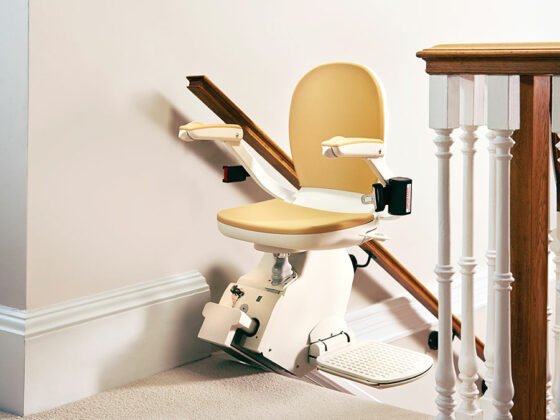May 12 is International Nurses Day, when people all over the world celebrate this noble profession’s contributions to healthcare. May 12 was chosen to honor the anniversary of Florence Nightingale’s (one of the most famous nurses) birth. We’re taking today’s blog to celebrate these amazing individuals who help us age in place and do so much more hard work for senior citizens and their families.
The Importance of Aging Place
We’ve established how aging in place can improve the health, well-being, and budgets of people as they age. There are so many reasons for aging in place!
But it can be challenging. And nurses are some of the individuals who can be most helpful in meeting the challenges we all face as we get older. Nurses play a vital role in supporting seniors’ ability to age in place.
How Nurses Promote Independence and Well-Being
 Nurses, nursing assistants and other home healthcare workers can often be the difference between whether people can continue to live in their homes or not.
Nurses, nursing assistants and other home healthcare workers can often be the difference between whether people can continue to live in their homes or not.
Being in the home can aid in memory care and keep other seniors close to their families, but as living without assistance becomes more complex, nurses are often the ones who fill the gap and make it possible.
They create personalized healthcare plans, make in-home visits, and are there for the most vulnerable moments in aging and healthcare journeys. Not everyone has family available to aid in their care, but even those who do can use the help of nurses.
Nurses are caring, but they are also more likely to notice when something changes than family members and can discern what’s normal and requires attention.
Collaboration with Healthcare Professionals
In addition to families, nurses also collaborate with other healthcare professionals for the individuals in their care. Of all the healthcare professionals, nurses generally have the most intimate relationships with patients. That relationship, along with their medical knowledge, makes them the perfect liaison between families and doctors.
Nurses are frequently the first to notice if a medication needs to be changed, a patient’s condition changes, or they lack something they need. While relevant to all patients, their presence and skills are especially vital to patients who, due to decreased mental facility, can’t advocate for themselves and may not have the communication skills to say what’s happening to them.
Mobility and Pain Management
From ADL’s perspective, they are also some of the best resources for the people we can help. Frequently, our referrals come from nurses who see that a patient they’re working with needs help coming up and down the stairs. They often initiate the hard conversation about whether a stairlift is necessary for the patient to remain at home and continue aging in place.
In addition to stairlifts and wheelchair lifts, nurses will also introduce our pain management tools and, in some cases, help administer the anodyne therapy or lymphedema pumps.
We’re thankful that nurses are available to help these patients and allow us to do the same. Be sure to celebrate the nurses in your life today and thank them for their strength and heart!
